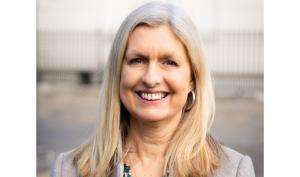Sort out the staffing crisis and invest in 'adult social care recovery'

Published by Professional Social Work magazing, 18 May, 2022
The new president of the Association of Adult Social Services (ADASS) has set out the post-pandemic challenges for the sector and called for social care to be equal in standing to the NHS.
In her inaugural speech this month, Sarah McClinton, a former social worker who is director of health and adult services at Royal Borough of Greenwich, pointed to Covid as exposing “pre-existing fault lines,” saying: “Low pay, poor terms and conditions, with over half of homecare workers on zero hours contracts, reflect the value we as a society place on people who carry out crucial, highly skilled work.
“As competition from hospitality, logistics and retail increases, staff vacancy levels have risen, so that one in every ten care roles were vacant in March this year. And it is not just about frontline care staff. We already have shortages of OTs and social workers, who are critical to recovery in social care, and we will need many, many more of them to implement reform.
“We know Covid has impacted disproportionately on some of our communities. People who draw on care and support have been particularly affected. We have learned a huge amount collectively, not least, the importance of achieving parity of esteem between health and social care.”
Pointing to the half a million people waiting for care and support, she said: “Directors are having to make invidious decisions about safety, who gets care, and what sort of care can be afforded.
She called for “significant investment” to support “adult social care recovery,” warning “without this, people will continue to suffer and pressures… will exacerbate. This is undeniably a crisis in social care.”
Investment should prioritise prevention and address “the inequalities exposed by Covid,” she urged, advocating “a strengths-based approach to health and wellbeing in our communities.”
She called on adult social care directors to be “a strong and equal voice with NHS colleagues at neighbourhood, place and ICS levels.”
“This is not about structural integration, it’s about strengthening relationships and influence to promote a social model, led by what matters to people and which recognises the importance of homes, good work and the wider determinants of health. We know the critical importance of social care in local economic development, providing good jobs for local people.”
Welcoming the “aspirations” set out in white papers on reform and integration, McClinton nevertheless warned that the cap that has been introduced “won’t, however, fix social care. There is a danger in the developing narrative that social care is now fixed.”
She said directors need to “seize the initiative” as the sector readies itself for “the biggest reforms… seen in a generation.”
“We need to stop being driven by events, and to start being assertive about the kind of care and support we want to see. We need a plan for the future – and all of us who draw on social care, who commission it, who provide it and who regulate it, can help shape that future.”
Looking back on her career as a social worker and in local government McClinton said: “I have remained absolutely convinced of the importance of strong community social work. It is the highly skilled work that our practitioners do every day that makes the difference to peoples’ lives.”
See here for inaugural speech of Steve Crocker, new president of the Association of Directors of Children’s Services
Steve Crocker
